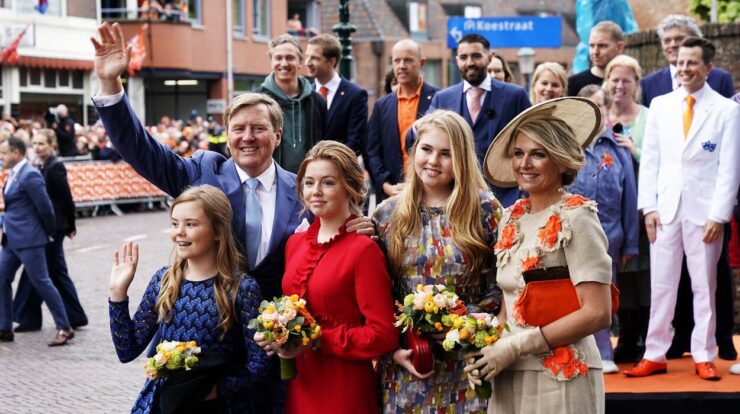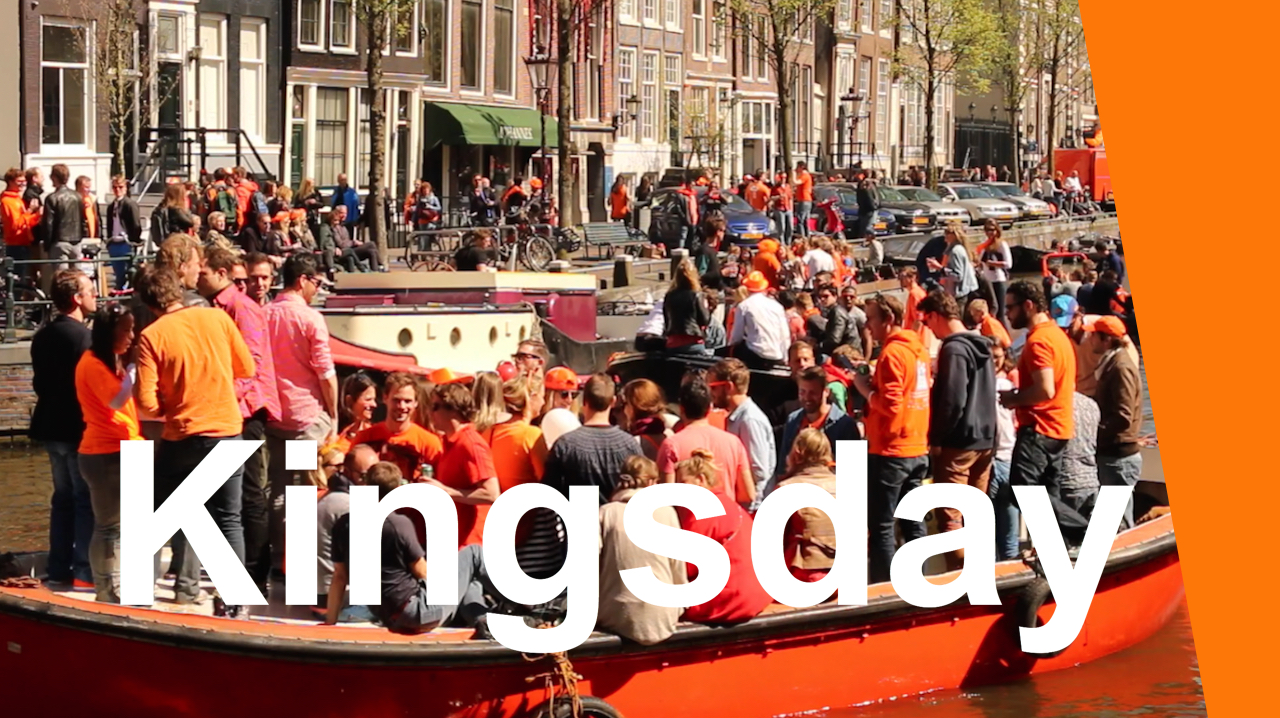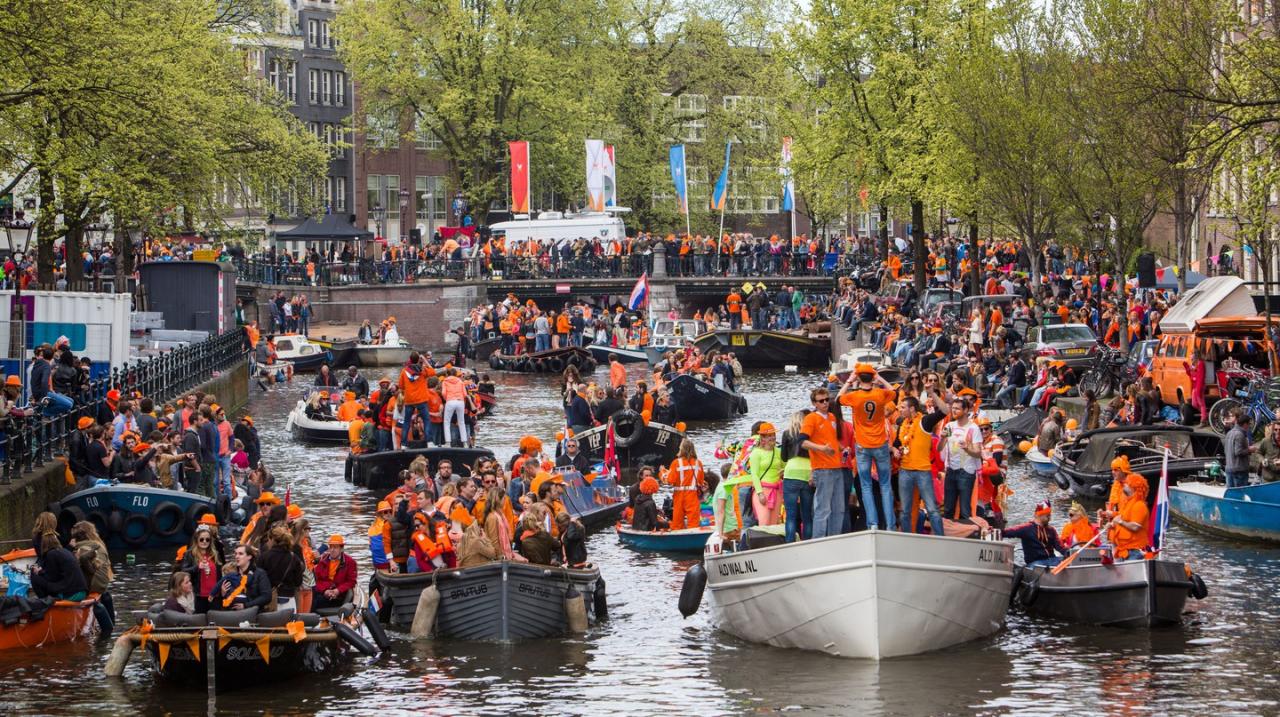
Dutch kings day – Dutch King’s Day, a national holiday celebrated annually in the Netherlands, is a vibrant and colorful festival that showcases the country’s rich history, traditions, and national pride.
With its origins rooted in the House of Orange-Nassau, Dutch King’s Day has evolved over centuries to become a beloved celebration that brings together people from all walks of life.
Historical Origins of Dutch King’s Day

Dutch King’s Day, also known as Koningsdag, has a rich historical heritage rooted in the celebration of the House of Orange-Nassau, the reigning royal family of the Netherlands. The tradition dates back to 1890, when it was first celebrated as the birthday of Queen Wilhelmina, who ascended to the throne in 1890.
The holiday was originally known as Princess Day, but was renamed Queen’s Day in 1949 after Wilhelmina abdicated in favor of her daughter, Juliana. In 2013, the holiday was renamed King’s Day to honor the current monarch, King Willem-Alexander, who succeeded his mother, Queen Beatrix, in 2013.
Festivities and Traditions
Dutch King’s Day is celebrated with a variety of traditional activities and events throughout the Netherlands. The most prominent of these is the vrijmarkt, a nationwide flea market where people set up stalls to sell their used goods.
Other popular traditions include parades, music festivals, and orange-themed decorations. The color orange is associated with the House of Orange-Nassau, and it is widely displayed on clothing, flags, and other items during the holiday.
| Event | Location | Time |
|---|---|---|
| Vrijmarkt | Nationwide | 9am
|
| Koningsdag Parade | Amsterdam | 10am
|
| Kingsday Festival | The Hague | 12pm
|
Significance in Dutch Culture
Dutch King’s Day is a significant cultural event in the Netherlands. It is a day for the Dutch people to come together and celebrate their national identity and pride. The holiday fosters a sense of unity and community, and it is an important part of Dutch tradition.
“King’s Day is a special day for all Dutch people,” said Queen Maxima in a speech in 2019. “It is a day to celebrate our country, our culture, and our royal family.”
Contemporary Celebrations
While the traditional customs of Dutch King’s Day remain largely the same, there have been some changes in the way the holiday is celebrated in modern times. For example, the vrijmarkt has become increasingly popular in recent years, and there are now more organized events and activities taking place on the holiday.
Another change is the increased use of social media to share photos and videos of the festivities. This has helped to spread the word about Dutch King’s Day and attract more visitors from around the world.
Economic Impact, Dutch kings day
Dutch King’s Day has a significant economic impact on the Netherlands. The holiday is a major boost for tourism, retail, and local businesses.
In 2019, an estimated 2 million people visited the Netherlands during King’s Day. This influx of visitors generated an estimated €700 million in revenue for the Dutch economy.
Global Recognition
Dutch King’s Day is celebrated not only in the Netherlands but also in other countries around the world. There are large Dutch communities in countries such as the United States, Canada, and Australia, and these communities often organize their own King’s Day celebrations.
In addition, there are many Dutch embassies and consulates around the world that host King’s Day events for their local communities.
Epilogue: Dutch Kings Day

Dutch King’s Day is a testament to the enduring spirit of the Dutch people, a day where tradition meets modernity, and where national unity and pride are celebrated with infectious enthusiasm.
As the day draws to a close, the streets gradually quieten, the orange decorations fade into the evening light, and the memories of a day filled with joy, laughter, and camaraderie linger in the hearts of all who participated.
Query Resolution
When is Dutch King’s Day celebrated?
Dutch King’s Day is celebrated on April 27th, the birthday of King Willem-Alexander.
What are the traditional activities associated with Dutch King’s Day?
Traditional activities include the vrijmarkt (flea market), parades, orange-themed decorations, and live music.
What is the significance of the color orange on Dutch King’s Day?
Orange is the color of the Dutch royal family, the House of Orange-Nassau.
